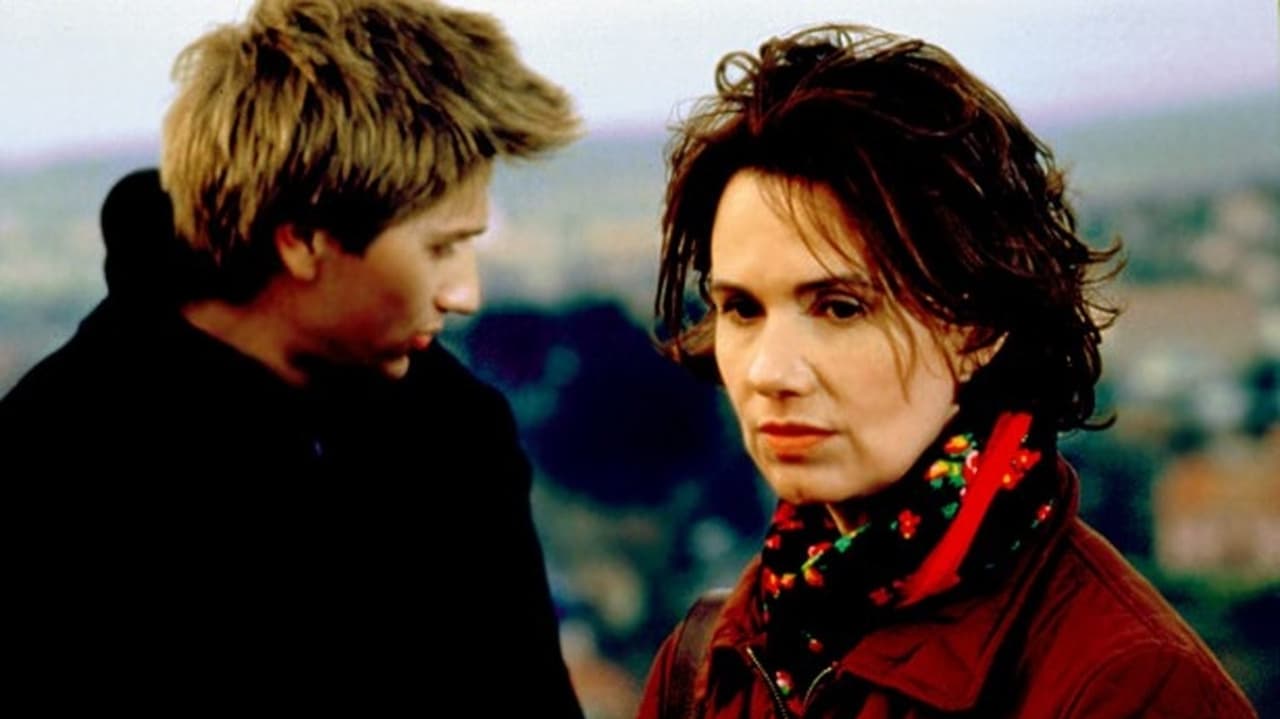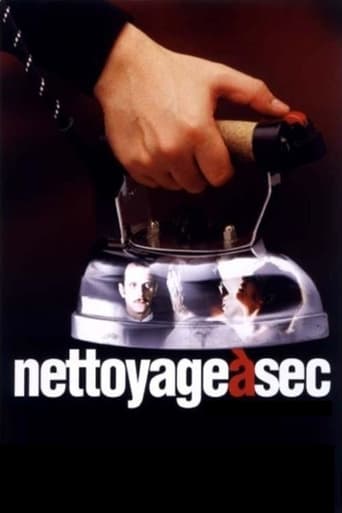FirstWitch
A movie that not only functions as a solid scarefest but a razor-sharp satire.
Micah Lloyd
Excellent characters with emotional depth. My wife, daughter and granddaughter all enjoyed it...and me, too! Very good movie! You won't be disappointed.
Kaydan Christian
A terrific literary drama and character piece that shows how the process of creating art can be seen differently by those doing it and those looking at it from the outside.
Francene Odetta
It's simply great fun, a winsome film and an occasionally over-the-top luxury fantasy that never flags.
Armand
Sad, melancholic, nostalgic and soft.A film about illusions and impossibility of escape. Description of failure and ambiguous expectation. French flavor and marks from Pasolini, empty universes and slices of love, game without innocence and failure of dreams.A world, a small world where the work is only real refuge. Where the memories or the projects are shadows of a lost time and a bovaric certitude.Delicate and tender, subtle and innocent, this film is a pledge for discover the sense of existence. The image of war with the other or with yourself, the fear like basic answer to the movement of time, the questions like skin of interior fog, the presence of temptation in the person of an androgynous teenager, the looks, deceptions or infidelity are elements of ordinary life. For everyone, "The Queens of Night" are key to a second chance, to a form of happiness. But always, the happiness is puzzle of illusions and the old rules are more strong that any form of seduction. In final, the corpse of a gorgeous dream like only "souvenir" of a perverse form of normality.
writers_reign
It's impossible - for me at least - to know whether or not Ann Fontaine was familiar with Joe Orton's sixties play Entertaining Mister Sloane (subsequently filmed)before writing and directing Nettoyage a sec some thirty years later but it is reasonable to assume that the central premise - bi-sexual catalyst male enters and ultimately disrupts household via sexual encounters with both male and female - is very similar with, in the case of the latter, a Gallic twist. Orton's protagonist disrupted a home occupied by a brother and sister both childless whilst Fontaine's shares a home with a married couple who have a child. There are, of course, other substantial differences, where Mr Sloane came, as it were, out of nowhere, Loic (Stanislas Merhar) is first encountered by Nicole (Miou-Miou) and Jean-Marie (Charles Berning) Kunstler in a club where he is performing a cross-dressing act with his sister Marilyn (Mathilde Seigner)and only goes to live with the Kunstlers some time later when Marilyn leaves both him and the act in favour of life with her boy friend. The Kunstlers have been married for some fifteen years and it may be said that the marriage has become as 'dry' as the dry cleaning business they own and is in need of sexual 'cleaning'. If so they came to the right place for the amoral Loic is happy to oblige, first by seducing Nicole - not terribly difficult as she was ripe for seduction - and then, with less success, Jean-Marie. What we have here is a fine, tightly written and directed script acted to perfection by the three principals and arguably the finest of Fontaines early films - Berning would later appear in her How I Killed My Father. Very definitely worth seeing.
allyjack
(WARNING - CONTAINS MILD SPOILER) The somewhat unresolved nature of the very last scene is ultimately dissatisfying, leaving a feeling that the film may have been inherently overly familiar - a chronicle of a straight- laced, unsatisfied couple who taste forbidden fruit and are almost ruined by it. The film's air of calm scrutiny is generally engrossing though, as it sketches the quiet disappointments and compromises of rural small business; a life caught up by routine, where years go by without a vacation. The plot initially finds the couple fascinated by sheer difference, leaving an enjoyable ambiguity as to whether there's any real sexual attraction on Berling's part toward Merhar, or whether it's largely a matter of intertwined ego, loneliness, and a symbolic yielding to the limitations of his life (the sexual encounter here looks like a pure power play). But the film's restraint makes it easy to take for the most part as a low-key, well-observed black comedy, thriving on the contrast between the ultra-orderly dry cleaning business and the flashy excess of the cross-dressing scene.
petshop
An interesting and somewhat mysterious tale of a middle aged couple who grow disillusioned with their dry cleaning business and find outlet with a cross dressing brother-sister-lover couple of performers. Their mutual obsession naturally leads to the demise of their relationships, businesses and ultimately their lives.The script is a bit dry, and lacks the punch that the subject matter is capable of delivering. Near the final act it tries to catch up as the homosexual attraction between the young man and the older husband comes zooming out of nowhere. A good editor would've suggested they drop some kind of hint earlier on.The abrupt and troubling ending leaves you satisfied.

